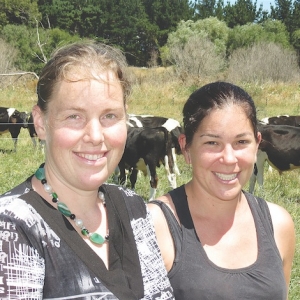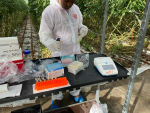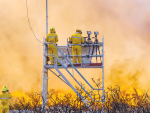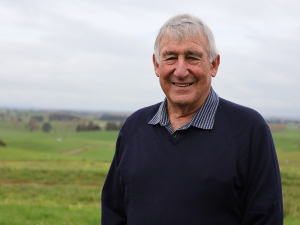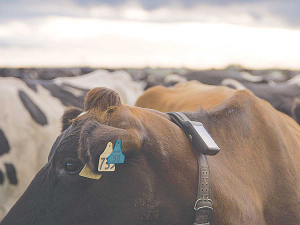An experiment at Massey University is investigating the best way to get Friesian bulls to grow faster during the summer. So far, it looks like grazing them on an herb mix is proving to be the winner.
The trial, funded by the Bake Family Foundation, is managed by Dr Rebecca Hickson, a senior lecturer in animal breeding and genetics at Massey.
She says that traditionally Friesian bull calves have a “bit of a problem” in that when they are weaned at 100kg in December they are generally put out onto pasture which is starting to deteriorate because of the hot, dry weather.
“So they often grow 0.3 or 0.4kg/day through the summer and they might do that for two or three months, but in reality they could be growing a kilogram a day. In the end they are way behind where they could be if they were fed high-quality feed through that time.
“So this project is looking at what sort of options we have to get accelerated growth in those bulls over the summer period.”
On one of the Massey farms, an experiment using three different ‘treatments’ or options has been underway now for three years. It hasn’t been the easiest of trials, so far, with the devastating 2013 drought causing grief and last year’s dry summer not helping matters either.
But Hickson is hopeful that this will see the trial take place in a ‘typical’ summer dry period.
“For this experiment we have a group of bulls on unlimited pasture and receiving a supplement of 2kg of calf meal each day,” she told Rural News. “That is the simplest way to supplement them, but it’s not cheap because they are eating 2kg of commercial meal per calf per day— but it’s got the advantages that you feed anywhere and it is very drought resilient.
“Over the fence we have bulls eating just pasture. This is second year pasture so it’s about as good as can be provided.
“We are topping it and doing our best to keep up the quality. This is about as good as it gets on non-irrigated pasture over summer.”
On another part of the farm there are the bulls on chicory, plantain, and red and white clover mix. These bulls are grazed on this ad-lib and Hickson says the difference is obvious.
“The quality of the crop is really marked. It is still fresh and green and it’s much better quality and we are seeing what you’d expect in growth rates. The calves on the crop are outperforming the calves on the pasture plus meal and also the ones on just pasture.
“They get roughly weekly breaks, but they are shifted as soon as pasture covers drop below 1500 which is the level at which intakes are seen as restricted, so they are never hungry.”
Hickson says they are hoping that on the herbs they can produce a 300kg bull by May 1, which will set it up nicely for killing about Christmas. She adds that, in many respects, the calves on pasture and meal may not be too far behind the calves on the herb pasture. However, a major part of the experiment is doing a cost analysis of the various ‘treatments’.
Vet student Amanda Donald is working with Rebecca Hickson on the project.
“Her summer job is to calculate what it is costing for establishing the crop verses feeding the meal,” Hickson explains. “My expectation is that the meal option is going to be a fairly expensive way of getting bulls up to weight,”
She says while the herbage crop can’t be grazed in winter, it fills a nice hole in growing the Friesian bulls during the dry summer/early autumn period when they are going to struggle.





